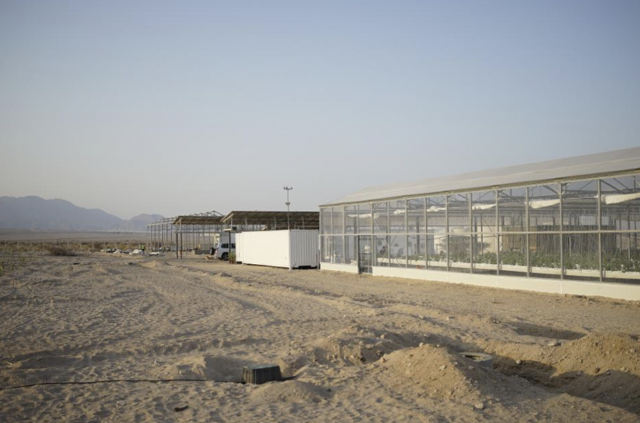NEWS Costa Is Now Serving Food From A Sci-Fi Desert Farm
For the original piece in Forbes, click here.
January 17, 2020
Costa Cruises and AIDA Cruises ships calling at Aqaba, Jordan, are offering their guests climate-friendly vegetables from an innovative farm outside the city. The new partnership brings together the Costa Group and the Norwegian non-profit Sahara Forest Project Foundation.
The initiative will deliver vegetables to a total of 14 incoming ships during the season from March to October.
With 28 ships and over 85,000 berths among the different brands, the leading cruise company in Europe and China wants to create a trend through this project.
“We believe that through this project we offer the chance to replicate the same approach in places and communities where the application of these cutting-edge technologies will represent a step forward into their life,” Davide Triacca, secretary general of the Costa Crociere Foundation, told Forbes.com.
“We also see the tremendous potential of making hundreds of thousands of guests on board Costa and Aida ships aware of key topics. Lastly, on a global scale the impact will be multiplied as usually other players in the cruise industry follow Costa’s leadership example.”
According to Costa, it ‘s not easy to scout innovative and sustainable projects that can be applicable in a realistic time-frame and that can provide a concrete value to the people and the environment.
“We acknowledge that innovation is not (only) an introspective process and that’s why the Foundation is always open to effective, sound project proposals from non-profit organizations and start-ups in various fields,” Triacca added. “We don’t have any geographical boundary as we will support projects that can bring benefits to the communities and the environment.”
Professor Dan Kammen, director of the Renewable and Appropriate Energy Laboratory (RAEL) at the University of California Berkeley, welcomed the partnership recently presented at COP.
“The Sahara Forest Project planet in Jordan is an exceptionally promising example of true out-of-the-box thinking about the clean-energy-food-water possibilities,” Kammen told Forbes.com.
“By leveraging low-cost renewables, this effort demonstrates that the benefits of clean energy can leverage dramatic shirts to a sustainable future where added food and water access is brought to life.”
According to FAO, the global demand for food, water and energy is expected to increase by about 40 to 50% by 2030. “Doubling food production by 2030 will not come from putting more fertile land into production but mainly from sustainably intensifying production – that is, getting more from agricultural lands already in use – and from using marginal lands, such as drylands,” said FAO natural resources officer Alessandro Flammini.
Due to the war in Syria, however, there has been issues and delays to the roll-out and upscaling. Key logistic routes to markets have been closed and some stakeholders had to change their agendas.
Another challenge has been establishing a saltwater pipeline from the Red Sea to the farm’s site, but the company is currently working with Jordanian officials to make some development in this sense.
“As we understand it, there has been implementation challenges and delays, but we should all hope that they overcome those,” the director of Norway’s International Climate and Forest Initiative (NICFI) Per Fredrik Pharo commented. “The Sahara Forest Project showed great promise. Clearly, its circular nature and ability to utilize non-fertile lands for food production and employment could be a breakthrough.”
Inaugurated under the patronage of King Abdullah II of Jordan and Prince Haakon of Norway in 2017, the Sahara Forest Project uses saltwater and sunlight to harvest products. It aims at greening desert areas and creating local jobs through production of food, freshwater and clean energy.
“The ongoing long-term agreement for supply of vegetables to Costa and AIDA ships can pave the way for an expansion of our project in Jordan, while raising international awareness for the need to scale-up innovative solutions to combat global warming and create local jobs in desert areas,” said Mr. Stake, managing director of the Sahara Forest Project.
“It is urgent to prove that it is possible to shift away from current agricultural practices traditionally using 80% of scarce freshwater resources and contributing with 25% of CO2 emissions in many dry countries and scale up concepts that are good for the environment, social development and business.”

You must be logged in to post a comment.